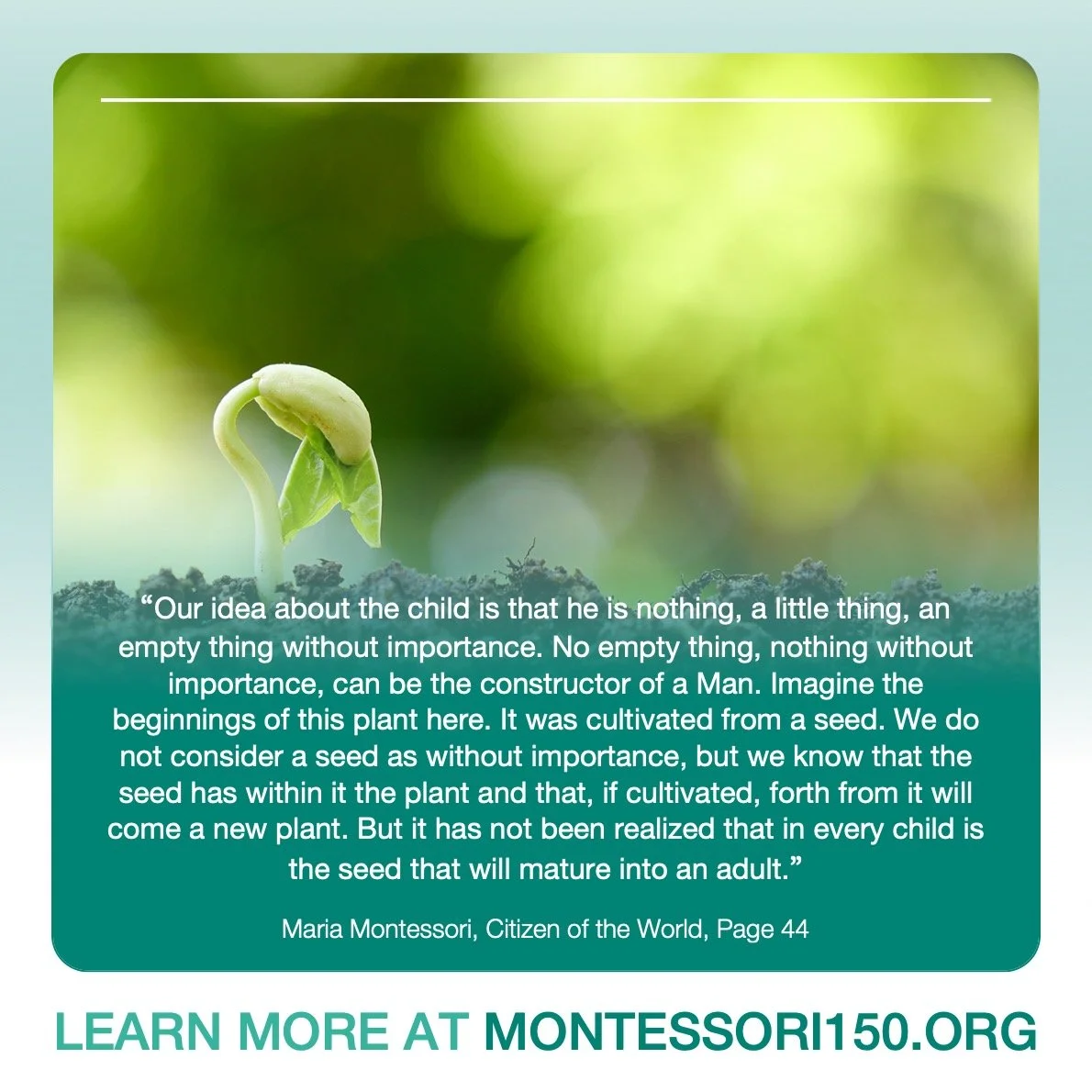Consistent Flexibility
There is a popular image in the Montessori world that parenting and teaching is similar to the roll of a gardener - we prepare the environment, nurture the child, and provide everything necessary so the child can develop according to their own unique inner drive. I’ve been thinking about this a lot lately as the growing season comes to a slow fade and Fall is in the air.
Mainly, how do we provide this nurturing environment that is ideally child-led but also maintain our role as guide and maintain our sanity? During infancy we are physically doing much more for children and respecting their individuality through, perhaps, slowing down our conversation to include them or maybe offering two choices and watching where their eyes go. As children become mobile and develop their will this becomes harder.
This image is taken from the website Montessori150.org
I think the phrase “child-led” often gets misconstrued to mean children make 100% of the decisions. This leads to permissiveness or an excess of freedom, which does no one any good. Children have little to no prefrontal cortex and in the early years it is our job to make many decisions for them with their best interest, health, safety, and learning in mind.
This is where consistency comes into play. Consistency communicates a sense of security - “I know this will happen because this is the routine and it has occurred this way before”. Some examples of areas requiring consistency include toilet learning, sleep, mealtimes, daily transitions, going to school or daycare, safety while riding in cars (to name a few…):
Some of these things have to be parent-led because our children are looking to us to make decisions in their best interest. The world can seem a very scary and overwhelming place to a child who is given free rein to make all decisions. But within those bigger parent-led decisions there is ample room for flexibility and a child-led approach.
Toilet Learning: “It’s time to use the bathroom because we are about to leave the house (parent decision) - I can see you really don’t want to go, but we need to try, would you like to walk in the bathroom yourself or would you like me to help your body get there (child’s decisions)?” (The act of sitting and trying is all that is truly necessary).
Sleep: “It is 7:30, time to go brush teeth (parent’s decision), I hear you saying you’re not done playing. Do you want your dinosaur or dump truck to come watch us brush teeth tonight? (Child’s decision).
Going to School: “I hear you saying you don’t want to go to school today, some days I feel the same way about going to work (parent’s decision). What snack would you like to make with me after school, a smoothie or muffins? (Child’s decision.
A main theme here is acknowledging feelings.
When we set boundaries with our children, we can do so with love - both in the way we speak and also in the follow through. When our actions match our words we’re communicating that the child can trust what we say and after many repetitions, they feel innately secure with that knowledge. Overtime as children grow, mature, and take on more responsibility these boundaries will become more mutual.
As parents and classroom guides we prepare the environment, which includes setting limits and respectfully establishing boundaries. We nurture the child by fueling their interests and trusting that they have the intrinsic knowledge they need to construct themselves. We provide everything necessary, including a steadfast, loving emotional environment in which they can thrive and come to trust themselves. We are establishing a beautiful, rich garden for this little seed to grow in that is sure to bloom into an amazing individual in years to come.
Meet Marly
A Montessori trained educator, sleep coach, and toilet learning specialist who has supported families for over a decade. Check out more on her website and sign up for her newsletter to receive your FREE Montessori guide to the first 12 months!

